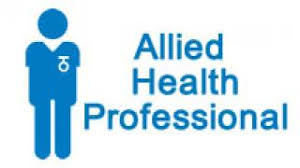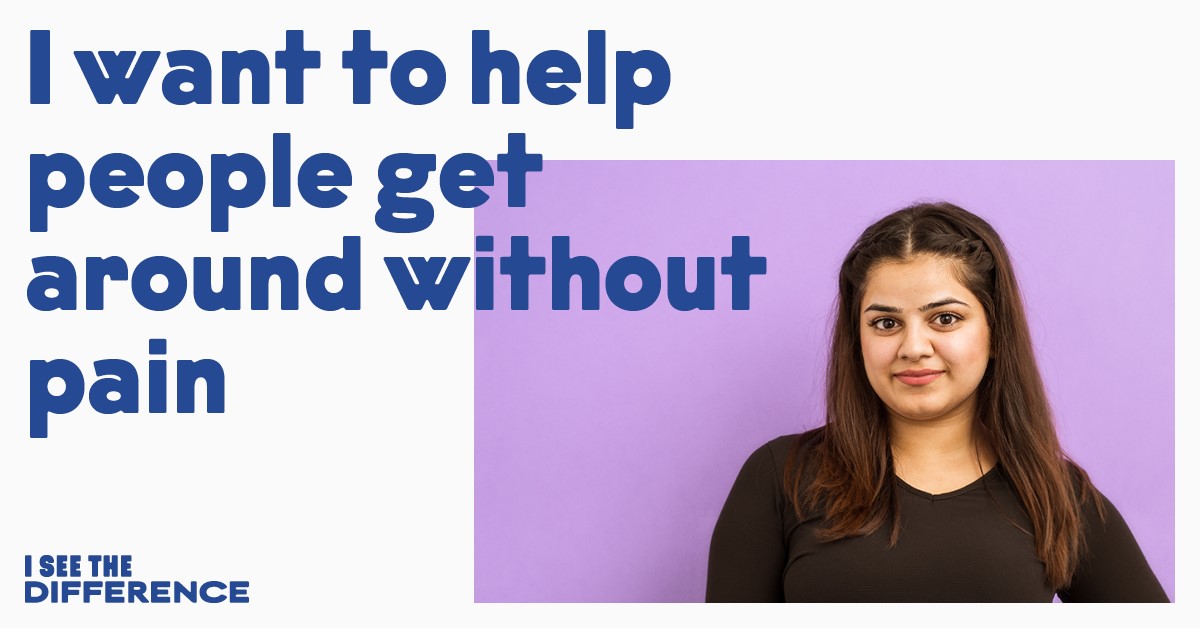From Armed Services To The Front Line Of Healthcare
Category: Recruitment
Publish date: 31/07/2020
 Richard Roll joined the RAF at 17 and served for 14 years. During this time he developed advanced mechanical and engineering skills working on fighter jets. Today he works as a podiatrist - an expert on the foot and lower limb - where he can take his mechanical expertise and apply it to the body.
Richard Roll joined the RAF at 17 and served for 14 years. During this time he developed advanced mechanical and engineering skills working on fighter jets. Today he works as a podiatrist - an expert on the foot and lower limb - where he can take his mechanical expertise and apply it to the body.
“It’s all basically the same,” he says. “Whether it’s an aircraft control system, a factory production line or a person’s foot. The big difference with the body is that everyone is different. If you’ve got an aircraft it’s the same as the one next to it, and how you fix one is likely to be the same as you would fix another. Bodies are different – each is unique.”
Podiatry is one of a set of health careers called the Allied Health Professions. These are jobs in healthcare, working alongside doctors and nurses, but with a particular specialism. Other roles within the AHP family include osteopaths, physiotherapists, prosthetists and orthotists. Unless you have received treatment from an AHP, they are often not well-known jobs, but they play a key part in the health system and offer exciting and rewarding careers.
At the moment, the NHS is facing a shortage of some of these professions. Demand for health services is set to rise in the future, as more people are living longer. It is becoming increasingly normal for people to live longer even with multiple health conditions, such as diabetes, heart disease and musculo-skeletal problems. And several of the AHP roles are essential to helping people keep mobile and live as healthily as possible.
 Other AHP roles deal with emergency situations, such as paramedics and Operating Department Practitioners, while you also have those focussed on communication and wellbeing, such as music, art or dramatherapists. The range of jobs within the AHP is highly varied and offers something for everyone.
Other AHP roles deal with emergency situations, such as paramedics and Operating Department Practitioners, while you also have those focussed on communication and wellbeing, such as music, art or dramatherapists. The range of jobs within the AHP is highly varied and offers something for everyone.
First thing you should know is that you need a university degree to be an AHP. Entry requirements are usually A levels or equivalent, but if you don’t have this you can take an access course at a Further Education College. Degree courses are intense but rewarding, blending academic learning with work placements where you learn alongside practicing professionals and see real patients. In some disciplines, degree apprenticeship routes are also being developed.
“It’s really important that people realise how many opportunities there are in healthcare after a career in the services,” says Claudia Gold, project manager for the ‘I See The Difference’ campaign, which works to raise awareness of the AHPs. “It may not seem an obvious route, but AHPs are often a really good fit for many skills that people develop while serving in the armed forces, like engineering or maths. Also, the discipline, reliability and personal responsibility shown by many ex-servicemen and women are very attractive to employers and course admissions tutors.”
Fees can be a big challenge for lots of people considering a university course, but extra support is available for people going into the AHPs because of the need for people to take these roles. This includes grants and bursaries, often including support for childcare and other costs. Student loan finance is available, and there may also be support on offer from military charities and services within the military to support the transition to civilian life.
The careers on offer are well-paid and flexible, with opportunities to advance, specialise and work privately. But most of all, they make a huge difference to millions of people’s lives. The AHPs provide an exciting new way for many service veterans to serve their country.
Find out more
If a career in an Allied Health Profession sounds interesting, you can find out more about the whole range of professions at iseethedifference.co.uk, which also has a course finder and information about funding.